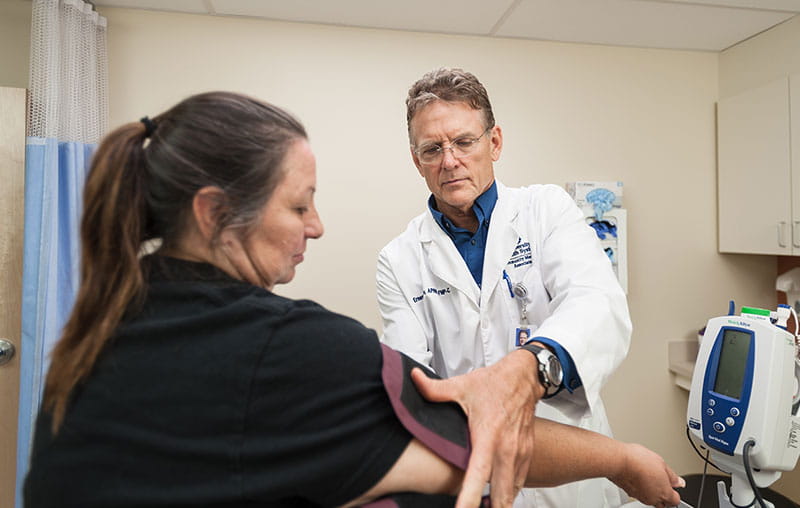Medical emergencies can’t wait. Whether it’s a heart attack, broken bone or a stroke, when you experience one of these serious conditions, you should seek immediate medical care.
Another serious condition you shouldn’t ignore is a transient ischemic attack, or TIA.
What’s a Transient Ischemic Attack (TIA)?
A transient ischemic attack (TIA) is more commonly known as a mini stroke and occurs when there is a temporary blockage of blood flow to the brain. The symptoms of a TIA are mild and often ignored. Dr. Lee Birnbaum, a University Health neurosurgeon, says a mini stroke may not appear to be serious but comes as a warning that you may have a stroke soon.
How are Transient Ischemic Attacks Different from a Stroke?
The main difference between a transient ischemic attack and a stroke is that the symptoms of a TIA are temporary. “The neurological symptoms come but then go away within a matter of seconds, minutes or even hours,” Dr. Birnbaum said. “A stroke, however, is permanent. The neurological symptoms come and do not go away.”
A TIA is a warning sign that something is wrong. “Being transient, a TIA gives you and your health care providers an opportunity to run tests, determine the cause of your TIA and then adjust medications or perform a procedure to prevent the TIA from becoming a stroke,” Dr. Birnbaum said.
While the symptoms may not last long, noticing them will give you time to act before you suffer permanent damage.
Symptoms of a Transient Ischemic Attack
Dr. Birnbaum says the symptoms of these mini strokes are similar to those of a stroke. It’s important to remember the acronym B.E.F.A.S.T. to detect a transient ischemic attack or stroke as early as possible:
- Balance: Trouble with balance or coordination
- Eyes: Sudden blurred, double or total loss of vision in one or both eyes
- Face:Asymmetry of smile
- Arm: Weakness in one arm when holding them up
- Speech: Slurred speech or difficulty finding words
- Time: Every second counts, so seek medical attention immediately
The American Stroke Association has a Spanish acronym to help you remember the signs of a stroke, RAPIDO:
- Rostro caído
- Alteración del equilibrio
- Pérdida de fuerza en un brazo o una pierna
- Impedimento visual repentino
- Dificultad para hablar
- Obten ayuda. Llama al 911
Older adults often dismiss symptoms such as difficulty finding words or muscle weakness as normal signs of aging. While this may be true in some cases, if you notice these symptoms in yourself or someone else, don’t hesitate to call 911 or seek medical care immediately.
Risk Factors of a Transient Ischemic Attack
Your risk for experiencing a transient ischemic attack is similar to that of stroke. If you have been told by a doctor that you're at an increased risk of stroke, then you should also be aware of mini stroke symptoms.
“Traditional risk factors are high blood pressure, high cholesterol, diabetes, smoking, obesity, poor diet and lack of exercise,” says Dr. Birnbaum. “More recently, sleep apnea has also been noted as a risk factor.”
Preventing Transient Ischemic Attacks and Strokes
The most important thing you can do is to check in with your doctor. “See your regular doctor annually for blood pressure measurements and general health check-ups,” says Dr. Birnbaum. “Also, follow a healthy lifestyle, such as Life’s Essential 8 from the American Heart Association.”
Adopting healthier diet and exercise habits can improve your blood pressure, cholesterol levels and heart function, and it may prevent a transient ischemic attack or stroke later in life.
Stroke Care at University Health
University Health is a Certified Comprehensive Stroke Center by The Joint Commission. We provide the highest level of care when you or a loved one has a stroke. Learn more at StrokeMovesFast.com.
Community Resources
We are also taking steps to address community needs within Bexar County. This is why we are excited to offer resources for everyone, whether you receive care from us or not. Visit our Institute for Public Health for stroke-related resources.




